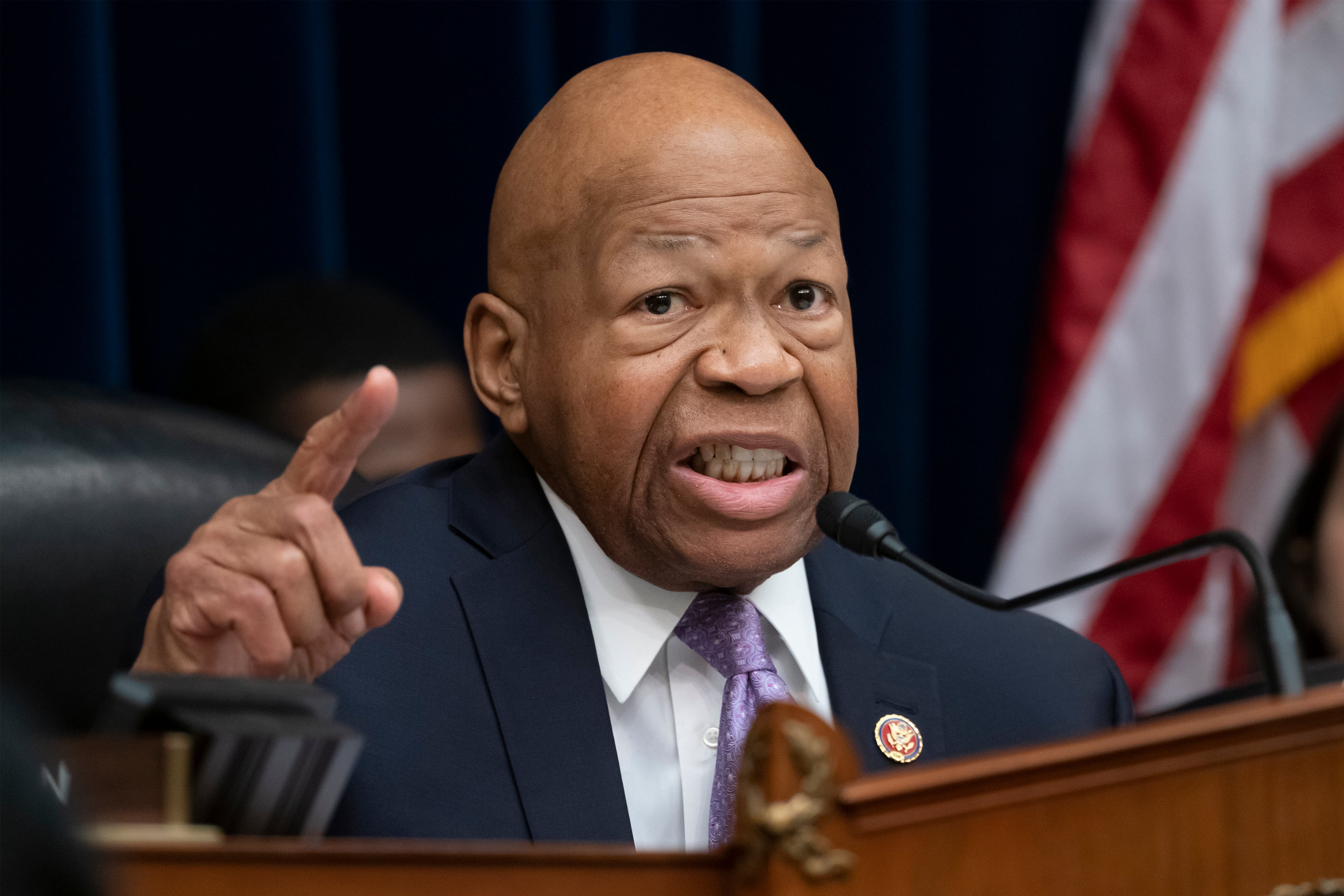WASHINGTON ― House Oversight Committee Chairwoman Carolyn Maloney on Wednesday proposed legislation to force government vendors to publicly disclose data about their costs, a move meant to help the government negotiate better deals for spare parts.
“We are here today to say enough is enough,” Maloney, D-N.Y., said Wednesday at her panel’s hearing on findings by the Pentagon’s inspector general that it overpaid for commercial and military aircraft parts from manufacturer TransDigm Group.
“Congress must act to empower contracting officers when they’re negotiating with greedy contractors like TransDigm,” Maloney said.
The legislation would require companies to provide the government with uncertified cost data when contracting officers need it to determine whether a price is fair and reasonable. The bill, released as a discussion draft, would apply to contracts government-wide, starting a year after enactment.
At the hearing, the Pentagon’s principal director for defense pricing and contracting, John Tenaglia, said Maloney’s legislation has the support of the Pentagon.
Contracting officers routinely look at historical prices paid or prices for equivalent commercial parts, he said. When those are not enough, they can request companies provide cost information ― but they don’t always get it.
“I believe access to cost data would give our contracting officers a better chance to negotiate fair and reasonable prices,” Tenaglia said.
The defense industry’s reception is expected to be cooler. The National Defense Industrial Association hasn’t seen the legislation and didn’t yet have a position, but said the situation with TransDigm ― which is not a member — is “the result of a shrinking defense industrial base and a supply chain that has an increasing number of single- and sole-source providers.”
“The answer to these challenges is expanding the defense industrial base, not erecting new burdens that will further shrink the number of providers supporting our warfighters,” NDIA said in a statement.
RELATED

The hearing comes as the Pentagon is seeking reimbursement of $20.8 million from TransDigm ― the second such request in three years, after its watchdog found the firm had earned “excess profit” from its defense contracts. A 2019 audit found the company received $16.1 million in excess profit on 112 contracts between 2015 and 2017 ― and TransDigm subsequently refunded DoD the money.
The Defense Logistics Agency said in a statement it is “requesting voluntarily refunds for excess profit paid on repair parts,” as recommended by the inspector general. Bloomberg, citing an official familiar with the matter, reported letters were sent to 32 specific TransDigm units requesting all $20.8 million flagged by the IG.
The inspector general and lawmakers on Wednesday criticized TransDigm’s business model, saying the firm identifies and acquires companies with highly-engineered sole-source spare parts, making them the exclusive provider to DoD. The recent audit found TransDigm made excess profit on 105 spare parts through 150 contracts.
TransDigm executives argued the company has broken no laws or rules, and that the audit’s yardstick for acceptable profit ― 15% ― was “arbitrary.” TransDigm chief executive Kevin Stein also said the company hadn’t decided whether to pay the $20.8 million.
“The IG failed to acknowledge that the majority of the audited parts have commercial equivalents and that, on average, DoD received a 25% discount,” Stein said. “The question is not how much it costs to produce a part, but whether the government is getting a fair and reasonable price.”
While most panel Democrats took aim at TransDigm, Republicans largely argued TransDigm was being singled out for systemic issues at the Pentagon. The panel’s ranking member, Rep. James Comer, R-Ky., called on DoD to better consolidate its orders, keep more spare parts in inventory and leverage information technology to anticipate its needs.
“These are changes we should be focused on, making the government more efficient. What we should not discuss today is placing more burdens on businesses, especially American businesses,” he said.
Along these lines, the Pentagon IG recommended DoD pursue alternative contracting strategies and combine purchases of parts to get savings. In 60% of DoD contracts with TransDigm, it purchases fewer than 25 spare parts, the inspector general found.
RELATED

In an exchange with Rep. Virginia Foxx, R-N.C., Tenaglia said obtaining intellectual property rights for parts is not typically part of the calculus for contracting officers, but DoD is exploring how to expand the practice to better manage the lifecycles of its systems.
Foxx said she’d welcome that, noting it might save taxpayers billions.
“I want to urge you along because we are spending way too much money because you sign these sole-source contracts, and other companies could be providing the parts a lot less expensively,” she said.
Tenaglia said the Defense Logistics Agency has an initiative to assess which parts are ripe for reverse engineering, but there’s “a limited capacity for us to do that.” Still, DLA is working with certain companies to create “technical data packages” and then reproduce the parts it needs.
TransDigm was ranked as the 50th largest defense company in the world in Defense News’ latest Top 100 list. The company made $2.18 billion in defense-related revenue in fiscal 2020; defense sales represent 43% of it total revenue during that time period.
Joe Gould was the senior Pentagon reporter for Defense News, covering the intersection of national security policy, politics and the defense industry. He had previously served as Congress reporter.








